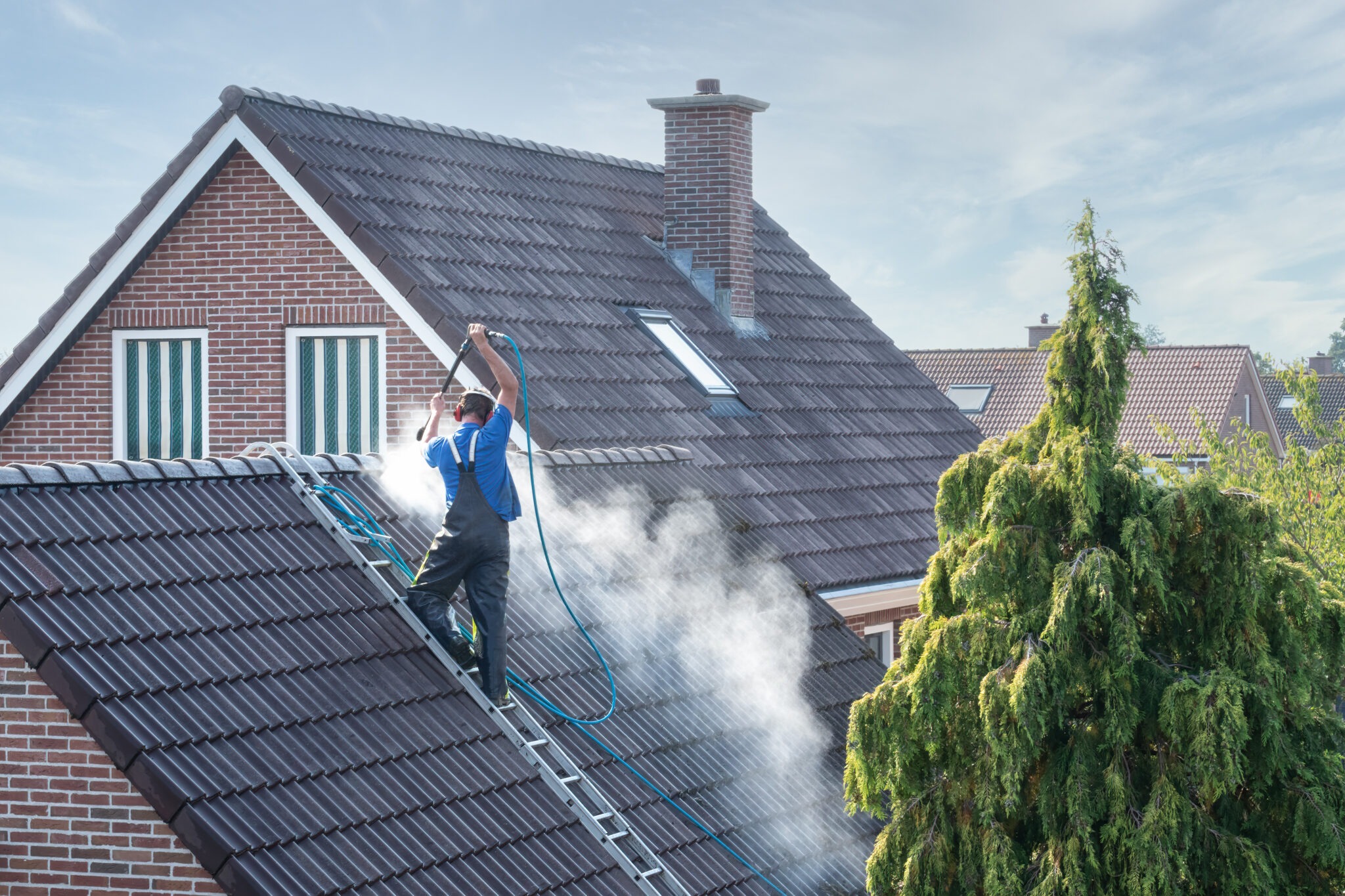
04 Dec Do You Need To Pressure Wash Your Roof? A Complete Guide
Maintaining your home’s roof is essential for preserving its longevity and curb appeal. One question homeowners often ask is whether they should pressure wash their roofs. In this blog, we’ll explore the pros and cons of roof pressure washing, when it’s necessary, and safer alternatives.
Why Clean Your Roof?
Over time, roofs can accumulate dirt, algae, moss, and other debris. Left untreated, these can lead to:
- Structural Damage: Moss and algae can weaken roof materials, causing leaks or cracks.
- Decreased Lifespan: Build-up can reduce your roof’s lifespan, leading to costly repairs or replacements.
- Lower Curb Appeal: A dirty roof detracts from your home’s appearance and value.
Should You Pressure Wash Your Roof?
While pressure washing is a common cleaning method, it’s not always the best choice for roofs. Here’s why:
The Risks of Pressure Washing a Roof
- Damage to Roof Shingles: High-pressure water can strip away protective granules, particularly on asphalt shingles, reducing their effectiveness.
- Water Intrusion: Water can be forced under shingles or tiles, potentially leading to leaks and water damage.
- Voiding Roof Warranties: Many roofing manufacturers discourage or explicitly prohibit pressure washing, which can void your roof’s warranty.
When Pressure Washing Might Be Necessary
Pressure washing may be appropriate for certain roof types, like concrete or metal roofs, but even then, extreme caution is required. If moss or algae have deeply embedded themselves, professional low-pressure washing might be an option.
Safer Alternatives to Roof Pressure Washing
Instead of pressure washing, consider these safer methods to clean your roof:
- Soft Washing: This involves using a low-pressure sprayer combined with cleaning solutions designed to kill moss, algae, and mildew. It’s gentler on your roof and highly effective.
- Manual Cleaning: For smaller moss or debris build-ups, a soft brush or broom can be used to gently clean the roof.
- Preventative Measures: Installing zinc or copper strips at the roof’s ridge can help prevent moss and algae growth over time.
How Often Should You Clean Your Roof?
The frequency depends on factors like climate, roof material, and surrounding vegetation. As a general rule:
- In humid or shaded areas, clean your roof every 1–2 years.
- In drier climates, cleaning every 3–5 years may suffice.
DIY or Professional Cleaning?
While you might be tempted to tackle roof cleaning yourself, hiring a professional is often safer and more effective. Professionals are trained to assess roof conditions and use the right tools and techniques to avoid damage.
Final Thoughts
Keeping your roof clean is essential, but pressure washing is rarely the best solution. Instead, opt for softer methods or reach out to us at 877-ROOF-HELP to ensure your roof stays in top condition for years to come. We can schedule a free inspection of your roof and give you a better idea of your best plan of attack when it comes to keeping your roof clean. A clean roof is a happy roof!



